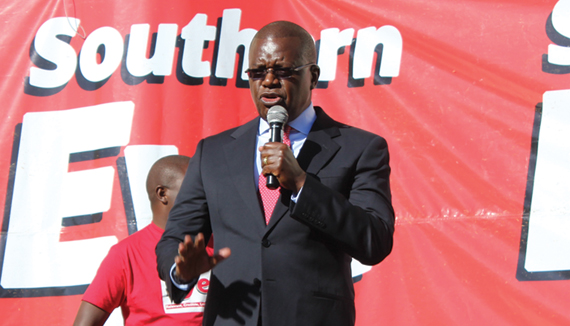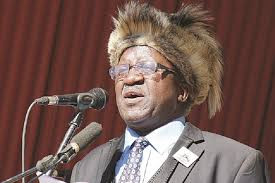
ALPHA Media Holdings chairman Trevor Ncube has pointed out that cultural prejudices remained as one of the major reasons why few women held senior posts in newsrooms.

SUKOLUHLE MTHETHWA recently in JOHANNESBURG, SOUTH AFRICA
Addressing female Zimbabwean journalists who were touring South African newsrooms under the Women Journalist Mentoring Programme at the Mail&Guardian offices in Rosebank, Johannesburg, SA, last week, Ncube said there had been some instances where women failed to take up higher posts they would have been offered.
“There are specific examples which you as women need to deal with as you go up the ladder in the newsrooms. I have instances where women, when approached for senior positions, decline to take them up because ‘I have a family and my husband is not keen on me taking up this job’,” Ncube said.
He cited an example where one woman had to resign.
“I have one example where one senior member of staff has had to resign because the husband does not allow her to work late. Journalism is a tough job. It is not a 9am to 5pm job. Sometimes you have to stay up late because of an assignment. There are issues of balancing life, families and work. I have had real practical instances over the past two or three years of senior members of my team who are unable to take up responsibility because their husbands don’t allow them to take up that responsibility.
“There is reluctance to embrace the responsibility that comes with higher positions in the newsrooms.
“For me those are some of the issues that need to be looked into as they are alive,” Ncube said.
- Chamisa under fire over US$120K donation
- Mavhunga puts DeMbare into Chibuku quarterfinals
- Pension funds bet on Cabora Bassa oilfields
- Councils defy govt fire tender directive
Keep Reading
He said there might be need to make certain changes so as to accommodate women in the newsrooms.
“I don’t know what gender sensitivity would say you handle a situation where you have a news editor who is a man and a news editor who is a woman. What do you do when it comes to assignments? Is there preferential treatment? I think there is need for that sensitivity which says she is a mother she has got responsibility of a family; maybe the assignments ought to take that into account.
“You realise that the female member of staff have such amazing skills and talent and amazing set of qualities and would excel in that position. The limitation around this is ‘my husband doesn’t allow me to work late’. I don’t know what to call it, cultural prejudices or what, but we need to deal with it. For me it is more than just the newsroom being hostile. Are we as African men ready to marry women journalists who have senior positions?” he said.
Ncube also spoke about sexual harassment which he said should be taken very seriously if it is raised.
The journalists arrived in South Africa on Monday last week accompanied by the Humanitarian and Information Facilitation Centre director Virginia Muwanigwa, United States embassy’s public affairs officer Karen Kelley as well as US embassy information assistant Caroline Mtingondo.
They toured Talk Radio 702, Media Monitoring Africa, CNBC Africa, Regional Media Hub, US Consulate, Mail&Guardian, Gender Links, Freedom of Expression Institute, City Press, South African Broadcasting Corporation, e-News Channel Africa and the Wits School of Journalism.
The scribes also visited the Mandela House in Soweto where the late former South African president Nelson Mandela used to stay in the 1940s.










